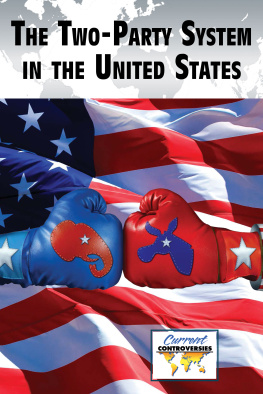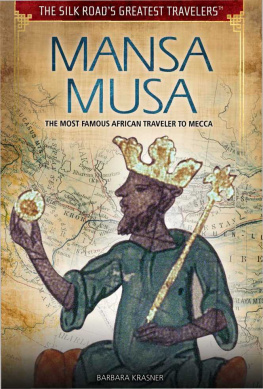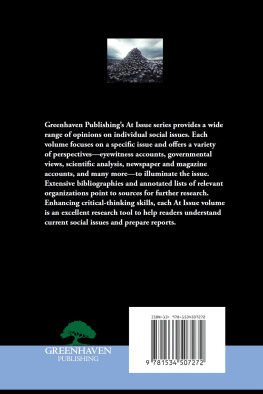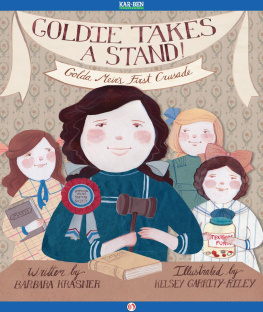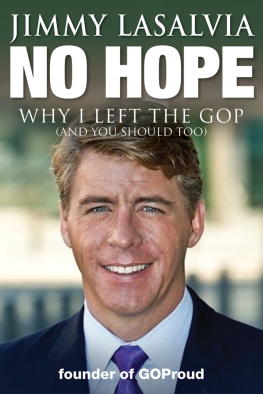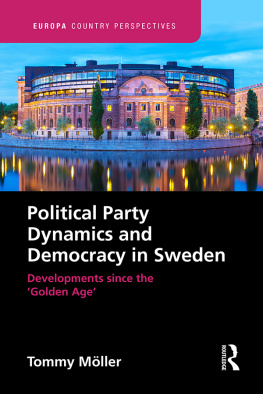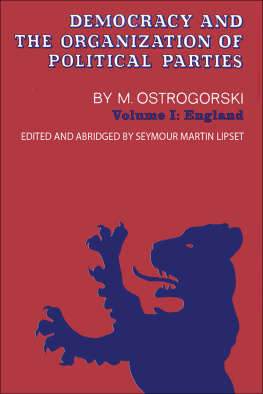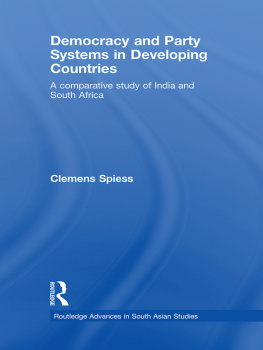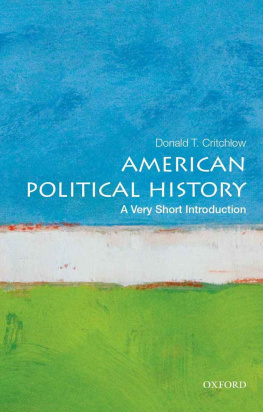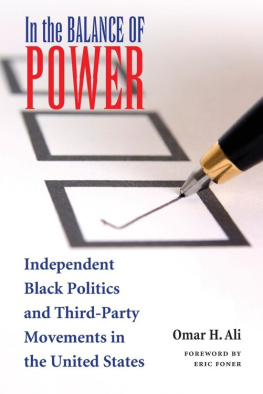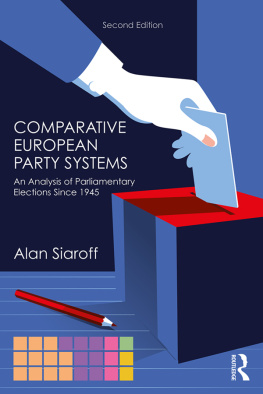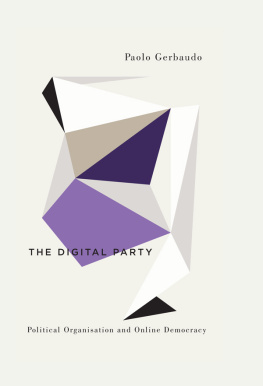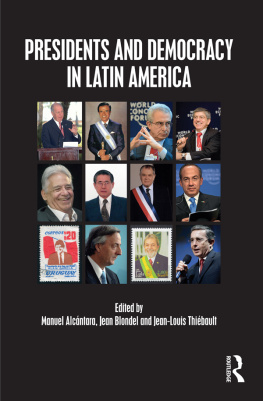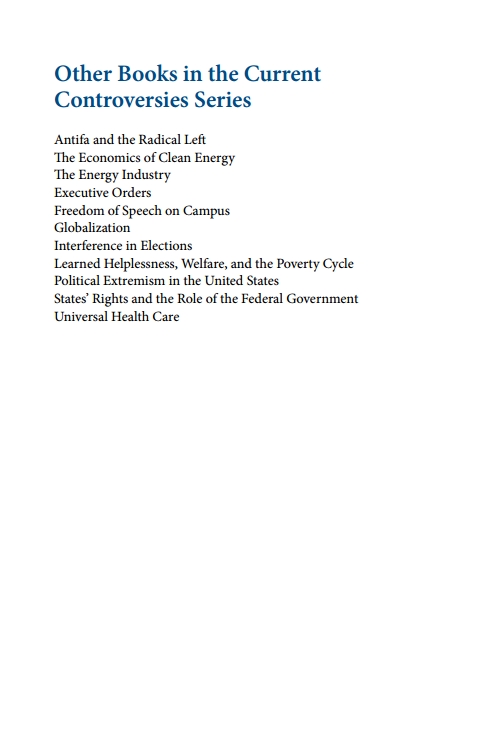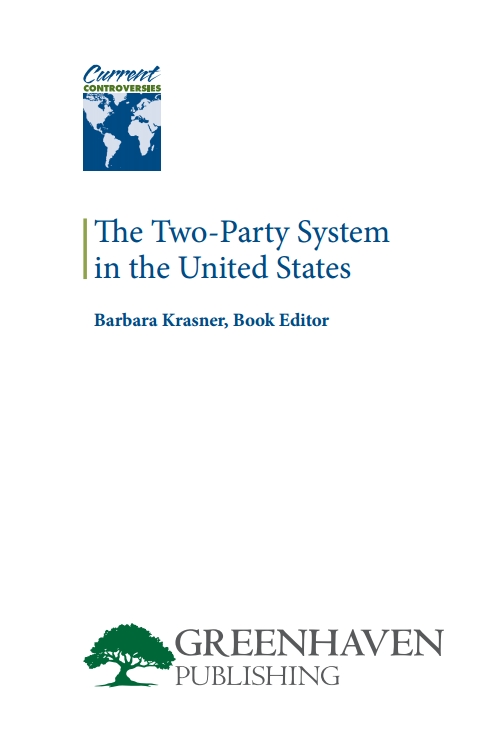Published in 2019 by Greenhaven Publishing, LLC
353 3rd Avenue, Suite 255, New York, NY 10010
Copyright 2019 by Greenhaven Publishing, LLC First Edition
All rights reserved. No part of this book may be reproduced in any form without permission in writing from the publisher, except by a reviewer.
Articles in Greenhaven Publishing anthologies are often edited for length to meet page requirements. In addition, original titles of these works are changed to clearly present the main thesis and to explicitly indicate the authors opinion. Every effort is made to ensure that Greenhaven Publishing accurately reflects the original intent of the authors. Every effort has been made to trace the owners of the copyrighted material.
Cover image: Lightspring/Shutterstock.com, background image AXL/Shutterstock.com
Library of Congress Cataloging-in-Publication Data
Names: Krasner, Barbara, editor.
Title: The two-party system in the United States / Barbara Krasner.
Description: First edition. | New York : Greenhaven Publishing, 2019. |
Series: Current controversies | Audience: Grades 9-12. | Includes bibliographical references and index.
Identifiers: LCCN 2018022907| ISBN 9781534503892 (library bound) | ISBN 9781534504653 (pbk.)
Subjects: LCSH: Political partiesUnited StatesJuvenile literature. |
Two-party systemsUnited StatesJuvenile literature. | United StatesPolitics and governmentJuvenile literature.
Classification: LCC JK2265 .T96 2019 | DDC 324.273dc23 LC record available at https://lccn.loc.gov/2018022907
Manufactured in the United States of America
Website: http://greenhavenpublishing.com
Contents
Lumen Learning
Though the names of parties have changed, the two-party systemrepresents all but a handful of elected officials.
Yes: Most Americans Affiliate with Eitherthe Democrats or the Republicans
Lumen Learning
History has proven that third parties simply do not win in Americanelections. The two-party system is classically American, and thesystem works.
Sidney M. Milkis
In the 1912 presidential election, former President TheodoreRoosevelt ran on the Progressive Party ticket. While he made asubstantial showing, Democratic candidate Woodrow Wilson wonthe election.
Connor Allen
Two parties in the American political system are sufficient forallowing voters room to maneuver. The real problem is that notenough people are turning out to vote.
No: The Two Parties Do a Poor Job ofRepresenting the American People
Eric Zuesse
Since 2003, Gallup polls show that an increasing number ofAmericans want a new political party. Zuesse points out the ways inwhich the government lets them down.
Domenico Montanaro
A seasoned political news journalist examines the two-party systemand identifies eight distinctive political ideologies, questioningwhether two parties should give way to eight.
Douglas J. Amy
A reform of the electoral system through proportional representationcan help American voters have their voices heard.
Independence Hall Association
Early eighteenth-century political candidates knew that to bringabout change through the political party system meant they neededto excite the public, not make gains at the oppositions expense.
Yes: Candidates Manipulate the Political Process
Vince Montes
An evaluation of campaign promises in the 2016 presidential electionreveals that the political process can be dominated to the point ofineffectiveness, with no credence given to the minority voice.
David Greenberg
Presidential hopefuls have been known to lie since the early days ofour nation, but the 2016 presidential election brought the practice tonew lows.
Jon Schwarz
A compilation of quotes from politicians highlights the reality thatmoney buys power and control in American politics.
No: The Two-Party System Is Not the Cause of Corruption
Jonathan Bernstein
Research suggests that Congress, not shifting presidential priorities,is responsible for presidents inability to keep their campaignpromises.
Ericka Menchen-Trevino
The presidential election of 2016 gave many Americans the choicebetween two candidates they didnt like. But maybe its not thecandidates or the voters fault. Maybe the electoral system is brokenand needs to be reformed.
Mark A. Lause
Voters must be willing to put a stake in the ground and let theirvoices and choices be heard in order for the electoral process tochange.
Kristina Nwazota
An evaluation of some of Americas more than fifty third partieshighlights their successes and their obstacles.
Yes: A Third Party Would Give Voters More Choices, New Ideas, and Innovations
Pew Research Center
Research continues to show that Americans, especially millennials,are opting out of the Democratic-Republican two-party system infavor of third parties.
Kristin Eberhard
The federal system can learn from experiments individual statesincluding Oregon and Washingtonare doing with proportionalrepresentation.
Danielle Wicklund
With the proliferation of third parties and special interest groups, itsclear the current political system is broken. Its up to the Americanpeople to fix it.
No: A Third Party Would Destabilize the Political System
Tom Murse
Third parties have never been successful in American electionsbecause American politics are rooted in the two-party system.
Steven L. Taylor
While some may argue America is on the verge of a multipartysystem, the two parties we have give American voters plenty of elbowroom.
Russell D. Renka
The two-party system will prevail because Americans want to vote fora candidate and a political party as a single package.
Annenberg Foundation
Many Americans join special interest groups to advance the ideals ofthose groups by influencing the political system, including throughelections.
Yes: Special Interest Groups Help Voters Select Candidates and Exercise the Right to Free Speech
Alexandra Raphel
While many questions about lobbying require more research, specialinterest groups demonstrate how individuals can come together tomake the most of group expertise and personal connections.
Lumen Learning
Interest groups form for different reasons, but all allow for greaterpolitical participation and influence in the name of democracy.
No: Special Interest Groups Pressure the Political System with Their Own Agendas
Martin Maximino
Research shows that business elites and organized groups heavilyinfluence American public policy, while masses-based interest groupsand average citizens have little influence.
Donald L. Barlett and James B. Steele
Congresss reluctance to rewrite tax laws allows corporate lobbyingto benefit from tax breaks while influencing the American politicalsystem.
Foreword
C ontroversy is a word that has an undeniably unpleasant connotation. It carries a definite negative charge. Controversy can spoil family gatherings, spread a chill around classroom and campus discussion, inflame public discourse, open raw civic wounds, and lead to the ouster of public officials. We often feel that controversy is almost akin to bad manners, a rude and shocking eruption of that which must not be spoken or thought of in polite, tightly guarded society. To avoid controversy, to quell controversy, is often seen as a public good, a victory for etiquette, perhaps even a moral or ethical imperative.

